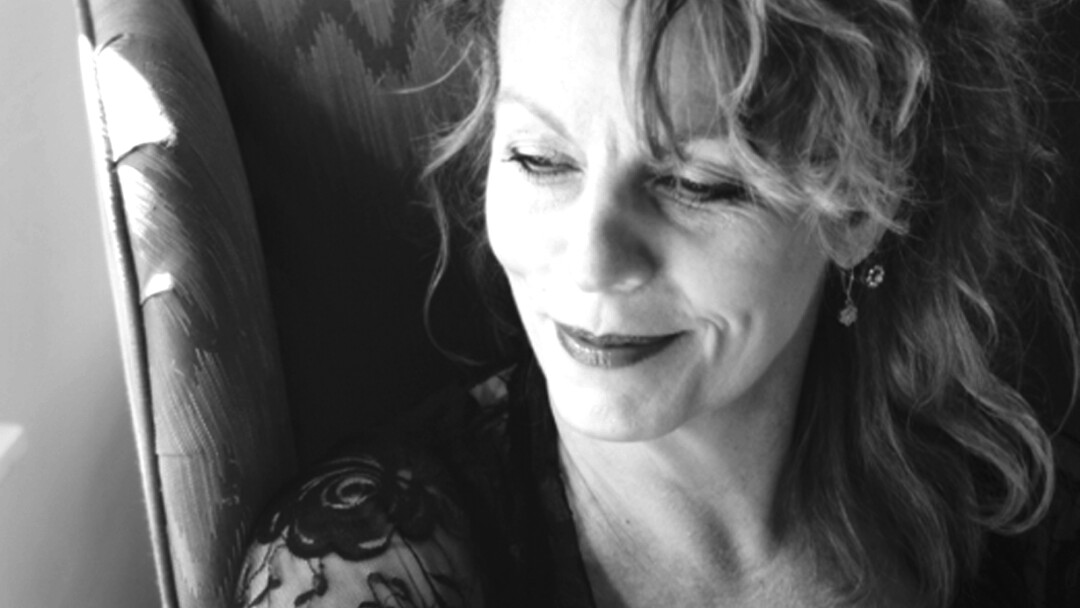Unflinching Self-Portrait
UWEC grad, novelist, and nonfiction writer headlines Book Fest

at Texas State University-San Marcos.
Debra Monroe didn’t start out to write a memoir. “I don’t even like the word ‘memoir,’ because it implies resolution and a Hollywood ending,” explains Monroe, a UW-Eau Claire alumnus and the author of five books. She loathes those “wrap-it-up-in-a-nice-bow” tales of redemption and recovery that became trendy in the past decade or two thanks to our Oprah-fied, pop-psychoanalyzed culture.
“Good nonfiction is part storytelling, part sociology, part poetry.” –Debra Monroe, writer, professor, and UWEC alumnus
And yet a series of nonfiction pieces grew into one successful memoir, On the Outskirts of Normal (SMU Press, 2010), and she has another memoir, My Unsentimental Education (University of Georgia Press), awaiting publication next year – although she prefers to label her work as creative nonfiction. As she tells her students at Texas State University-San Marcos, the best a writer can hope for is to ask the important questions about life and to offer tentative answers to a few of them.
“Good nonfiction is part storytelling, part sociology, part poetry,” explains Monroe, one of the headliners of the upcoming Chippewa Valley Book Festival (which began Oct. 13 and runs through Oct. 23). Like a poet, a nonfiction writer can be overt in her statements about the meaning of life, Monroe says, while fiction writers have to conceal such revelations amid their fiction.
The award-winning author of two story collections and two novels, Monroe eventually bumped up against the limits of fiction – at least her “emotionally autobiographical” variety. In real life, she was a twice-divorced single white woman living in a tiny Texas town who adopted a black infant. Her 2004 novel Shambles features a protagonist in a similar scenario, something that at least one publisher dismissed as “too politically correct.”
“It was like people really didn’t quite buy it – that the world is really that diverse,” she says. In the late 1990s, it was Monroe who brought diversity to her nearly all-white Texas town in the form of her adopted daughter, Marie. The book describes the challenges – including unwanted stares and uncomfortably questions – that the pair’s skin colors prompted. “I never saw my motherhood as political,” she writes in On the Outskirts of Normal. “I saw it as my motherhood. But it has political moments, and I can’t back down.” Her reaction to the world, she realized, likely wouldn’t transform the minds of the ignorant or bigoted, but would shape how her growing daughter perceived herself and navigated the complexities of race in America.
On the Outskirts of Normal is only partly about race, however: It’s a relatable and revelatory story about loss, love, and personal transformation – and even though O: The Oprah Magazine liked it, don’t expect easy epiphanies or saccharine endings. Monroe’s memories of growing up in Wisconsin aren’t sugar-coated, either: The isolation of small-town life permeates her work, and her new memoir – part of which she’ll read on Oct. 18 – addresses her hard upbringing and her unease attending college at UWEC. “It’s a memoir about social class jumping, moving from working class to professional, and the imposter syndrome that is inevitable,” Monroe says.
An “improbably” good student during her childhood in Spooner, Monroe was encouraged by a high school teacher to go to a writing camp at UW-Eau Claire. It took some prodding to convince her to attend, but the experience became what Monroe calls the most exciting two weeks or her life. The drive home to Spooner seemed as confining as a trip down a cattle chute, she recalls.
Nonetheless, her return to UWEC as a undergraduate was less than smooth. Coming as she did from a blue-collar household in a tiny town, Monroe had difficulty relating to her better-off classmates. She dropped out for a semester, but fought her insecurity, dug in, and returned to college. While she spent the ensuing years as a nomadic academic – a master’s degree in Kansas, a doctorate in Utah, teaching in North Carolina and Texas, and success as a writer – the roots of her career stretched back to Wisconsin. As a writer, Monroe’s honesty and emotional intensity can be as stark as a northern Wisconsin winter. She doesn’t pull punches about any aspect of her life – including family estrangement, abusive partners, and how success in academia became “plan B, C, and D” after her dream of being a typical married Midwestern woman fell through. “The thing is, I tell my own secrets,” she says. “I’m the one I hang out to dry.”
To learn more about Debra Monroe and her work, visit www.debramonroe.net.


















